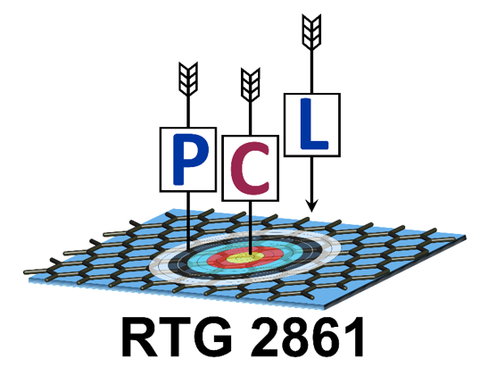Nov 11, 2022
New Research Training Group: It doesn't matter what a material is made of, as long as it’s of carbon!
The new Research Training Group (RTG) 2861 of TU Dresden and FAU Erlangen-Nürnberg combines innovation and interdisciplinarity in research and education in the field of planar carbon lattices. It is one of eleven Research Training Groups nationwide that have currently been approved by the German Research Foundation (DFG) for the next five years. The spokesperson is Thomas Heine, Professor of Theoretical Chemistry at TU Dresden.
With the Research Training Group 2861, the universities of TU Dresden and FAU Erlangen-Nürnberg are launching a joint initiative for the comprehensive training of scientists in the still relatively young but rapidly developing field of planar carbon lattices (PCL). This new class of materials are atomically precisely ordered materials whose basal plane forms a 1D or 2D lattice, for example graphene nanoribbons or 2D polymers. PCLs combine the chemical variety of planar molecular building blocks with the structural diversity of 2D lattices, making it possible to produce materials with virtually any properties from carbon, entirely without the use of toxic, rare, or noble elements. Thomas Heine, Professor of Theoretical Chemistry at TU Dresden and spokesperson of the RTG explains, "The RTG 2861 benefits from the complementary infrastructure and expertise of the TUD and FAU sites. We are creating a unique combination between synthetic chemistry, condensed matter physics and materials science and aim to jointly explore and synthesize new PCLs using experimental and theoretical methods. These could find future application in quantum materials, optoelectronic or electrochemical devices of the next generation."
Due to the rapid development and interdisciplinary nature of the field, so far there is no standard approach to research-based PCL education. The RTG aims to build this needed standard through an interdisciplinary research and qualification program that combines chemistry, physics and materials science. Janina Maultzsch, professor of experimental physics at FAU Erlangen-Nürnberg, is the partner site spokesperson of GRK 2861. She describes the training concept as follows: "We will develop open-access online lectures and tutorials for beginners and advanced students and intend to publish an open-access textbook on PCLs. Research and education at two sites will be facilitated by a virtual research environment combining digital teaching with online tools for sharing information and research data."
Another important component of the GRK are broad diversity measures, which, on the one hand, aim for a 50% share of female doctoral students and, on the other hand, focus on the promotion of young talents from developing countries. "I am particularly pleased about the commitment of FAU and TUD, which each provide a preparatory scholarship for students from developing countries. In conjunction with our open science program, we hope to enable international talents to enter top science," explains spokesperson Thomas Heine.
Media inquiries:
Prof. Thomas Heine
Spokesperson RTG 2861
TU Dresden
Tel.. +49 351 463-37637
Web: https://tu-dresden.de/mn/chemie/pc/pc1
Prof. Janina Maultzsch
Chair of Experimental Physics
Partner site spokesperson RTG 2861
FAU Erlangen-Nürnberg
Tel.. + 49 9131 85-27073
Web: https://www.exphys.nat.fau.eu/

